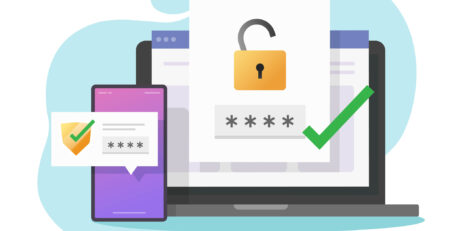The Importance of Regular Software Updates and Patching
In today’s fast-paced digital world, small businesses rely heavily on technology to streamline operations, enhance productivity, and stay competitive. However, with the increasing reliance on software comes the critical need for regular updates and patching. As an IT-managed service provider in Southern California, we understand the unique challenges small businesses face. This article aims to shed light on the importance of regular software updates and patching, ensuring your business remains secure, efficient, and resilient.
One of the primary reasons for regular software updates and patching is to enhance security. Cyber threats are constantly evolving, and hackers are always on the lookout for vulnerabilities in software systems. When software developers identify these vulnerabilities, they release patches to fix them. By regularly updating and patching your software, you close these security gaps, protecting your business from potential cyberattacks, data breaches, and other malicious activities.
Moreover, software updates often come with performance improvements and bug fixes. These updates can optimize the software’s functionality, making it run more smoothly and efficiently. For small businesses, improved software performance translates to increased productivity and reduced downtime. Regular updates ensure that your software is running at its best, allowing your team to work more effectively and without interruptions.
Compliance with industry standards is another crucial aspect of regular software updates and patching. Many industries have specific regulations and standards that businesses must adhere to, especially when it comes to data protection and cybersecurity. Regular software updates and patching help ensure that your business remains compliant with these industry standards. Non-compliance can result in hefty fines, legal issues, and damage to your business’s reputation. Staying up-to-date with software updates demonstrates your commitment to maintaining a secure and compliant IT environment.
Access to new features and functionality is another significant benefit of regular software updates. Software developers are continually working to improve their products by adding new features and functionality. Regular updates provide your business with access to these enhancements, which can improve your operations and give you a competitive edge. Whether it’s a new tool that streamlines a process or an improved user interface that enhances user experience, staying current with software updates ensures you are leveraging the latest advancements.
As technology evolves, older software versions may become incompatible with new hardware, operating systems, or other software applications. Regular updates and patching help prevent compatibility issues, ensuring that all components of your IT infrastructure work seamlessly together. This is particularly important for small businesses that may not have the resources to deal with extensive IT problems. Keeping your software up-to-date minimizes the risk of disruptions caused by compatibility issues.
While it may seem like a hassle to regularly update and patch your software, it can save your business money in the long run. Unpatched software can lead to security breaches, system failures, and other issues that can be costly to resolve. By proactively maintaining your software, you reduce the risk of these expensive problems. Additionally, improved software performance and access to new features can lead to increased efficiency and productivity, further contributing to cost savings.
In conclusion, regular software updates and patching are essential for small businesses to maintain security, efficiency, and compliance. As an IT-managed service provider in Southern California, we are committed to helping our clients stay ahead of potential threats and challenges. By prioritizing software updates and patching, you can protect your business, enhance performance, and ensure long-term success. Don’t wait for a security breach or system failure to take action—make regular updates and patching a fundamental part of your IT strategy today.











Leave a Reply